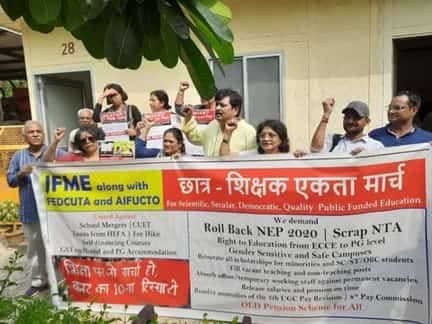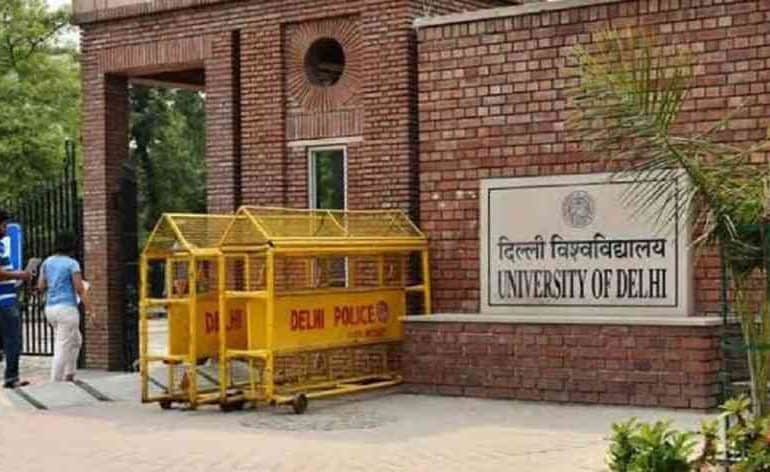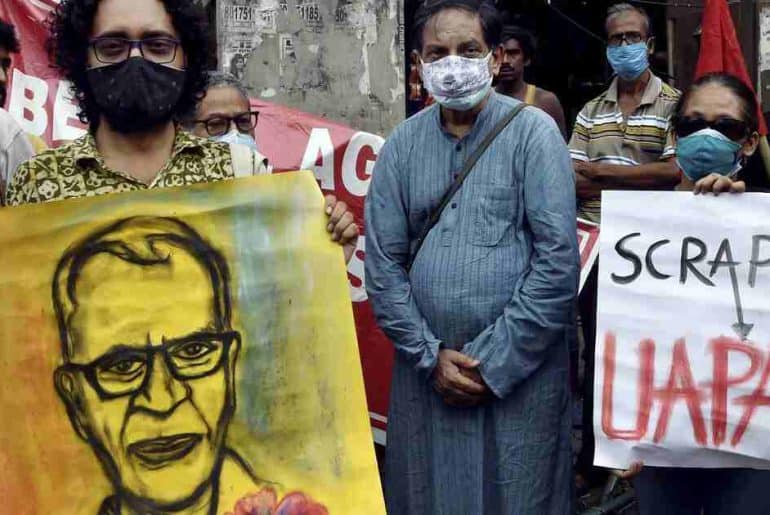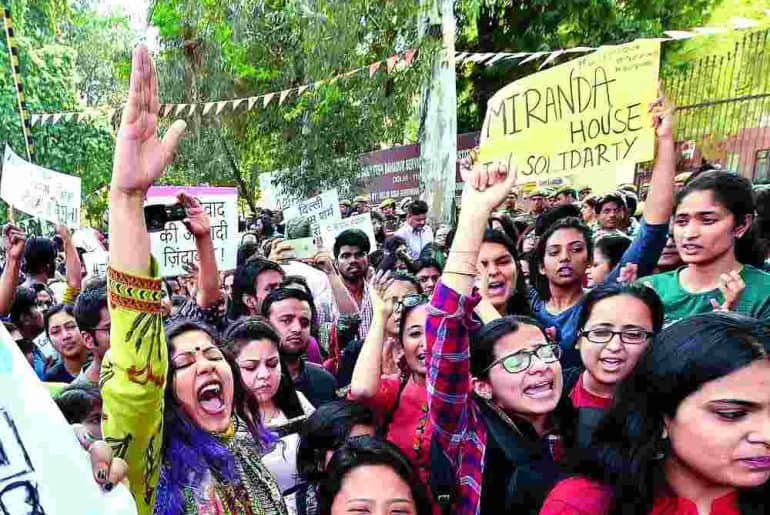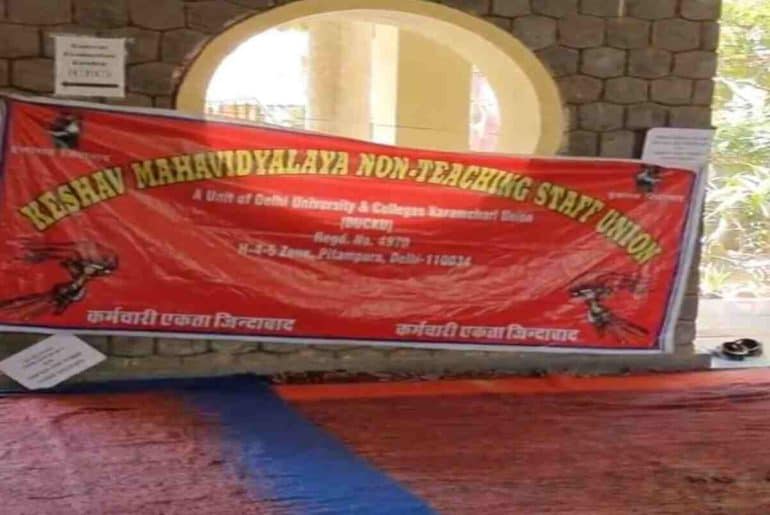Following the lead of several universities banning student activism on campus, Jamia Millia Islamia has intensified its crackdown on student-led protests.
A circular was issued by the college administration dated 29 November 2024, explicitly banning protests, dharnas, sit-ins and any form of sloganeering against constitutional dignitaries, days after students raised slogans against the current Prime Minister, Narendra Modi. In lieu of these supposedly new guidelines, students requested permission to hold a sit-in protest on 15 December 2024, commemorating five years of the anti-CAA protests held at Jamia, which turned violent when a protesting student, Shadab Najar, was shot. Permission for holding this event was denied, and the college shut down the library and the canteen on the said date, citing “maintenance reasons,” which was allegedly done to suppress dissenting student voices.
Despite this, approximately 300 students participated in the peaceful protest after class hours, so the said demonstration did not disrupt any academic activities.
– Saurabh, a PhD student at Jamia via EdEx
The administration, however, quickly responded by issuing show-cause notices to Saurabh and four others, accusing them of disrupting campus order and pushing certain political agendas. On 6 February, 2025, the administration further issued Disciplinary Committee hearings against the concerned students, stating that their responses to the show-cause notices were unsatisfactory. In response to this, students began a sit-in protest demanding an immediate revocation of these show-cause notices and a withdrawal of Disciplinary Hearings issued against protesting students. Larger demands of the protesting students include a revocation of the guidelines issued on 29 November, 2024 and 29 August, 2022.
When students know that standing up for their rights could cost them their education, it forces self-censorship, making the environment even more repressive. This decision reinforces the ongoing erosion of dissent, making it evident that critical conversations, even within academic spaces, are no longer welcome.
– Azhar via Youth Ki Awaaz
The administration further refused to engage in dialogue with the students and responded by increasing barricading around campus, deploying 20+ security personnel armed with lathis around the protest premises. In a gross violation of the protesting students’ right to privacy, their names along with their addresses and phone numbers have been pasted outside the university’s front gate.
This incident is not an isolated instance but part of a larger pattern of crackdowns on student activism and academic freedom, especially across public universities in India, reflecting the Center’s broader attempt to suppress dissent by directly attacking intellect.
Featured Image Credits: The Observer Post
Sakshi Singh



